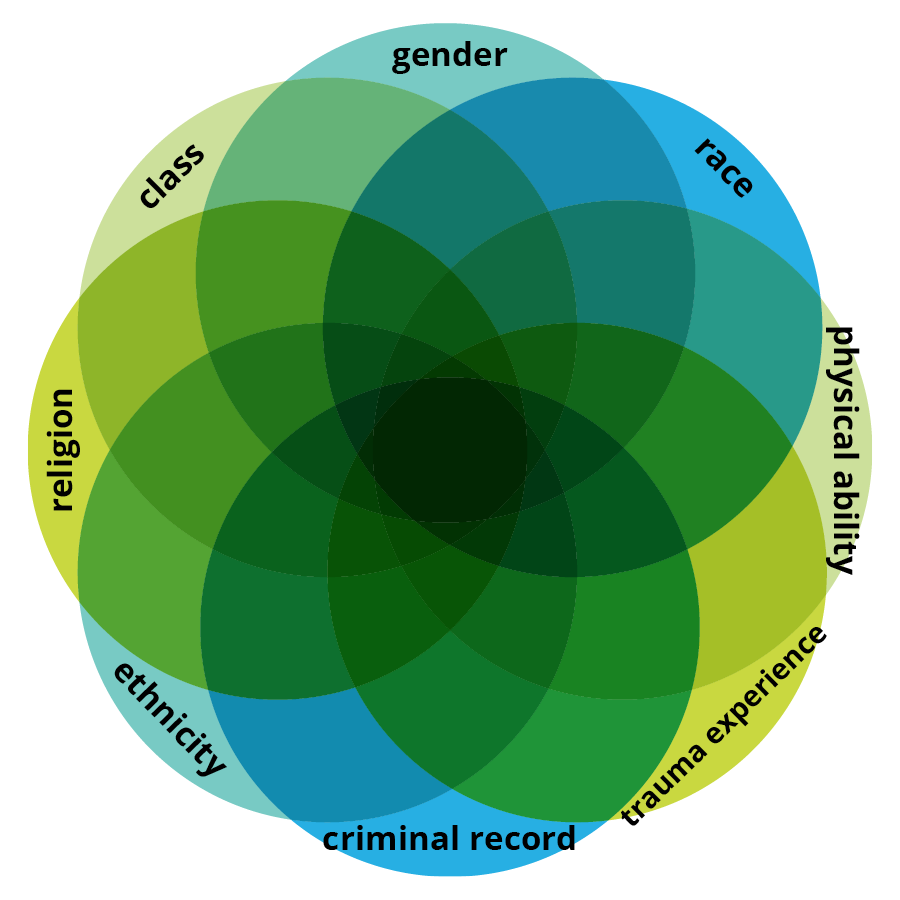November 15, 2017
By Erika Sussman*
Recently, white-led, mainstream domestic violence organizations have been highlighting the connection between domestic violence and mass shootings. And, while that is an important link in desperate need of policy attention, what we white advocates are not talking about is the fact that the majority of men committing mass shootings and private violence against women are by-in-large White.
What do we make of the fact that most acts of public terrorism are committed by White men, who also abuse their partners? And, more to the point, how does an analysis that centers whiteness shift our approach to ending violence against women and its profound public consequences?
Misogyny and white supremacy are deeply connected, interlocking systems of oppression. The white supremacy movement is grounded in principles of misogyny. Women are to be controlled. Feminism is the enemy, as are people of color, immigrants, and non-Christian people. Look to almost every single incident of white terrorism and you will find the shooter attributing his rage to his wife, his former girlfriend, a mother-in-law, or having been scorned by women more generally. Indeed, connection amongst white supremacist males is achieved by inflicting violence against women and people of color. This white male bonding is the antidote to their feelings of alienation and non-belonging, resulting from a feeling of decreased white and male power.
As Ruby Sales notes: “What do you say to someone who has been told that their whole essence is whiteness and power and domination? And when that no longer exists, then they feel as if they are dying or they get caught up in the throes of death.….I don’t hear anyone speaking to the 45-year-old person in Appalachia, who is dying of a young age, who feels like they’ve been eradicated because whiteness is so much smaller today than it was yesterday.”
At the same time that we are grappling with these acts of public terrorism, our media waves are flooded with serial sexual abusers and harassers, primarily white men, who occupy the highest ranks of industries, inflicting systemic abuse against female subordinates with impunity. While not exercising flagrant white supremacy in the sense of spewing racial epithets, surely the shield of white privilege facilitates white male predators’ acts of sexual abuse against women.
Common amongst reports of white mass shooters has been inquiry into mental illness and the individual’s motive, a focus which stands in stark contrast to that afforded women and people of color. In a similar way, with the string of sexual harassers we take painstaking caution in passing judgment, much less punishment, of each white man, while we urge the universe of women to proclaim #metoo and detail her experience of violence without a wink to consequence or re-traumatization. Such emphasis on the humanity of white male perpetrators both relieves them of responsibility and prevents us from forging solutions that address the root causes of violence in our society. As Rebecca Traister points out, “[While] it is crucial that we explore the psychological development of human beings who turn violent, as well as those we are felled by and affected by violence….What’s wrong is our failure to give equal time, energy, emotional and narrative consideration to the experiences of those figures who are not white and male.”
All of this leads me to ask: When will white advocates for survivors of gender based violence address the ways in which whiteness and white supremacy fuel violence against women? It is not just guns. It is not just misogyny. It is white men acting out their dominance, both by virtue of being white and by virtue of being male.
When will we focus our curiosity, not on why this individual white male turned to violence, but on how systems of patriarchy and misogyny both create and sustain his violence? And, when will our strategies for addressing violence against women embrace the deeply rooted reality that dismantling white supremacy is central to the project?
White feminists need to step up in dismantling white patriarchal violence. Let us think and act beyond discrete incidents, by employing systems change strategies that target both white supremacy and misogyny:
- That means examining our courts, our policies, our distribution of resources, addressing both racial and gender bias where it so clearly shows up. For example, the battered mother’s movement has long identified “men’s rights” or “father’s rights” groups as key players shifting custody outcomes that are harmful to women and children; let us center not only the gender bias here, which is a significant component, but also the white supremacy that animates this the men’s rights movement.
- It means crafting strategies that challenge the ways in which racial privilege has and continues to influence legal outcomes, both for perpetrators and victims of domestic and sexual violence, resulting in disparities in housing, arrest, and even debt that we keep hearing about. Such strategies will involve education and litigation that uses narrative and data to expose and rectify the disparate outcomes for survivors of color and for perpetrators of color, while removing protections that so often shield white male perpetrators from legal consequences of their actions.
- It also means crafting movement strategies that engage white people in examining: the ways in which they can use their privilege to challenge white supremacy; facing up to the ways in which white privilege has protected white men from the consequences of their actions and protected white women, often at the expense of women and men of color. Such uncomfortable conversations will enable us to exercise agency in the spaces that we find ourselves, whether at home, with our extended families, in our communities, or in the workplace.
Yes, mass shootings require that we end gun violence. But, if we want to be honest, if we want real, sustainable change, that gets at the root of our culture’s violence, white mainstream organizations fighting to end violence against women must confront the reality that we have ignored for far too long: We cannot end violence against women without addressing white supremacy.
*Erika Sussman is Founder and Executive Director of the Center for Survivor Agency and Justice, a national advocacy, training, and research organization that addresses domestic and sexual violence by advancing the economic and racial equity of survivors.














